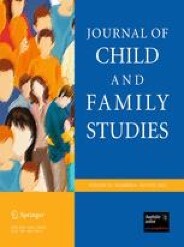Family Coping among Mexican-Origin Immigrants: Links to Child Mental Health
Item
Title
Family Coping among Mexican-Origin Immigrants: Links to Child Mental Health
Loyola Faculty Contributor
Catherine DeCarlo Santiago
Link
List of Authors
Catherine DeCarlo Santiago; Anna M. Ros; Laura M. L. Distel; Jaclyn Lennon Papadakis; Stephanie A. Torres; Stephanie K. Brewer; Anne K. Fuller; Yvita Bustos
Abstract
Objectives
Family and culture play primary roles in the development of positive mental health functioning for Latino youth. This study utilized observational methods to assess family coping strategies among a population at risk for high levels of stress.
Methods
Participants were 104 Mexican-origin immigrant families with a child between the ages of 6–10 (Mage = 8.39; 61% female). Families completed a set of audio- and video-recorded observational interaction tasks involving hypothetical situations relevant to low-income immigrant families and appropriate for discussion with young children, in which families were asked to discuss how they would manage or respond to the situation. Following observational tasks, questionnaire measures of familism and mental health were administered verbally.
Results
Longitudinal regression analyses showed that observed family reframing and family problem solving were associated with better mental health functioning over one year among children. However, passive appraisal, mobilizing support from the community, and spiritual support were linked to worse mental health outcomes over time for children. Familism showed significant moderation in only one model, suggesting effects of family coping may not differ across levels of familism.
Conclusions
Family reframing and family problem solving may be important factors to consider in the promotion of child mental health.
Family and culture play primary roles in the development of positive mental health functioning for Latino youth. This study utilized observational methods to assess family coping strategies among a population at risk for high levels of stress.
Methods
Participants were 104 Mexican-origin immigrant families with a child between the ages of 6–10 (Mage = 8.39; 61% female). Families completed a set of audio- and video-recorded observational interaction tasks involving hypothetical situations relevant to low-income immigrant families and appropriate for discussion with young children, in which families were asked to discuss how they would manage or respond to the situation. Following observational tasks, questionnaire measures of familism and mental health were administered verbally.
Results
Longitudinal regression analyses showed that observed family reframing and family problem solving were associated with better mental health functioning over one year among children. However, passive appraisal, mobilizing support from the community, and spiritual support were linked to worse mental health outcomes over time for children. Familism showed significant moderation in only one model, suggesting effects of family coping may not differ across levels of familism.
Conclusions
Family reframing and family problem solving may be important factors to consider in the promotion of child mental health.
Date
1-Oct-19
Publication Title
Journal of Child and Family Studies
Publisher
Springer
Identifier
DOI: 10.1007/s10826-019-01602-6
Bibliographic Citation
Santiago, C. D., Ros, A. M., Distel, L. M. L., Papadakis, J. L., Torres, S. A., Brewer, S. K., Fuller, A. K., & Bustos, Y. (2020). Family coping among Mexican-origin immigrants: Links to child mental health. Journal of Child and Family Studies, 29(1), 182-194. https://doi.org/10.1007/s10826-019-01602-6

